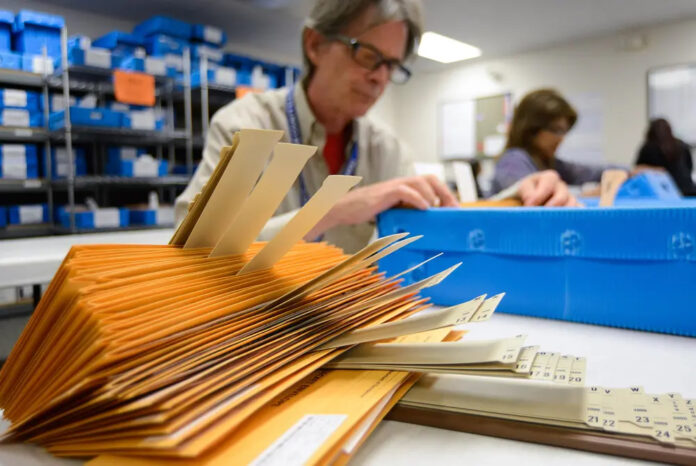By Cassandra Pollock, The Texas Tribune
The U.S. Department of Justice is suing Texas over the state’s new voting law, arguing that the some measures passed by the GOP-controlled Legislature earlier this year would “disenfranchise eligible Texas citizens who seek to exercise their right to vote.”
The Texas voting law, known as Senate Bill 1 and signed into law by Gov. Greg Abbott in September, makes a host of changes that further tighten the state’s election laws, such as banning drive-thru voting and setting new rules for voting by mail. The Justice Department is focusing its suit on two provisions of the new law: one related to assistance in voting booths and another related to the rejection of mail-in ballots.
“These vulnerable voters already confront barriers to the ballot box, and SB 1 will exacerbate the challenges they face in exercising their fundamental right to vote,” the suit argues, saying that the law would negatively impact voters with disabilities, elderly voters, members of the military who are deployed, voters with limited English proficiency and voters residing outside of the country.
The law, set to take effect in time for the 2022 primary elections, has already faced legal challenges that generally argue it will disproportionately impact voters of colors and voters with disabilities. Those challenges, along with Thursday’s lawsuit, could delay the implementation of the new state law.
Abbott, in a tweet responding to news of the suit, defended the new law, saying, “Bring it … In Texas it is easier to vote but harder to cheat.”
Meanwhile, House Democrats applauded the Justice Department’s move, saying they were “grateful … for taking decisive action to stop Texas Republicans’ continued attacks on our democracy.”
““Senate Bill 1 is a sweeping piece of legislation that creates unnecessary and deliberate barriers to voting,” said a statement from state Reps. Chris Turner, Rafael Anchía, Nicole Collier and Garnet Coleman, a group of Democrats who chair the House Democratic Caucus, Mexican American Legislative Caucus, Texas Legislative Black Caucus and Legislative Study Group, respectfully.
The group also reiterated its call on Congress to pass federal voting legislation, which was part of what fueled a weekslong quorum break from most House Democrats over the summer in an effort to block passage of the GOP elections bill.




